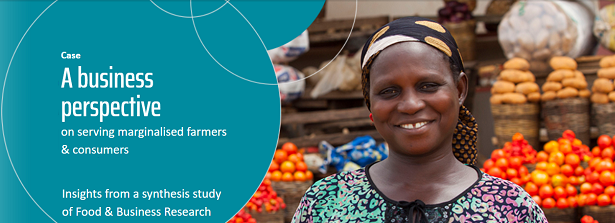The policy framework underlying the Food and Business Research programme builds on the premise that the private sector can contribute innovations to (aspects of) the food system so that it becomes more advantageous to groups that currently remain underserved in low and middle income countries (LIMCs).
This case presents the project outcomes related to the synthesis question:
This case presents the project outcomes related to the synthesis question:
- How can the private sector optimally capitalise on research findings and innovations that enhance business opportunities?
- And which in turn have the potential to improve the food and nutrition security of small-scale farmers and agri-entrepreneurs and poor consumers?
- firstly, innovations for agricultural production and processing that intend to meet (existing or anticipated) needs of poor and marginalised producers and consumers in LMICs; and
- secondly, new approaches or strategies to connect marginalised producers to the market.
This case presents key insights and results from the full paper ‘Capitalising on knowledge: how research can enhance business opportunities that serve marginalised farmers and consumers’ that is published in a series of articles based on the synthesis study of the Food & Business Research programme. This study is led by Daniëlle de Winter and Dr Ellen Lammers.


No comments:
Post a Comment